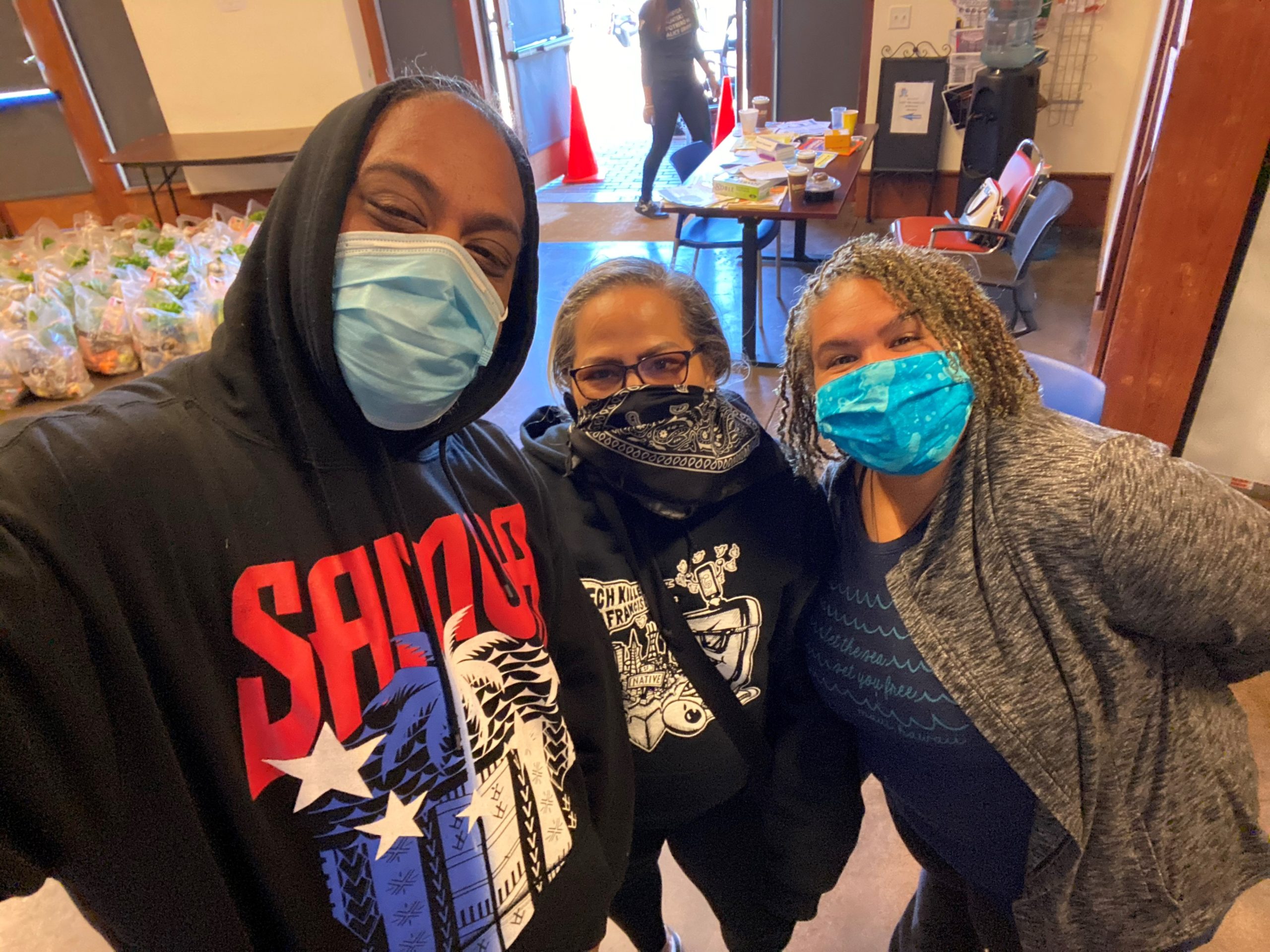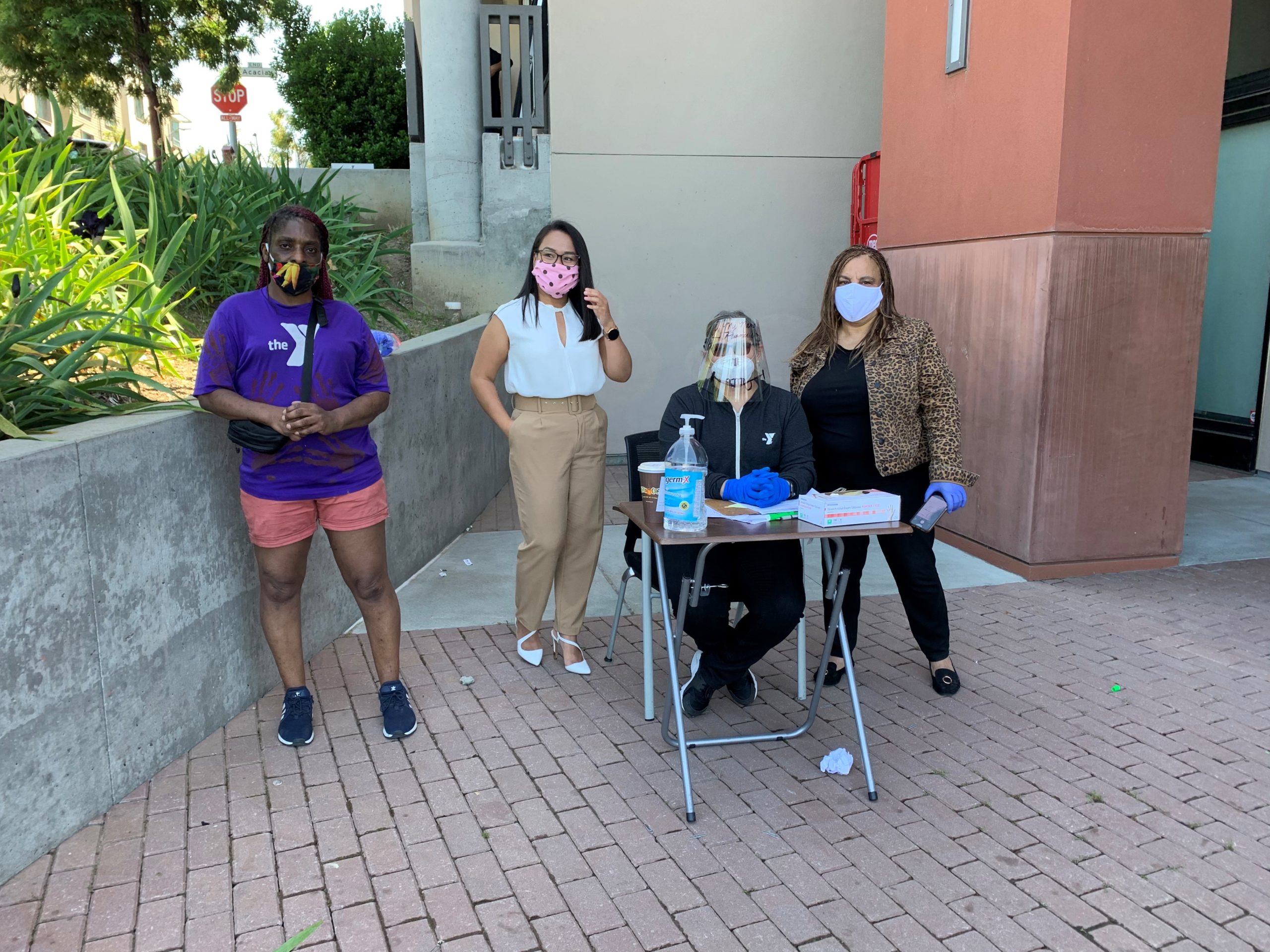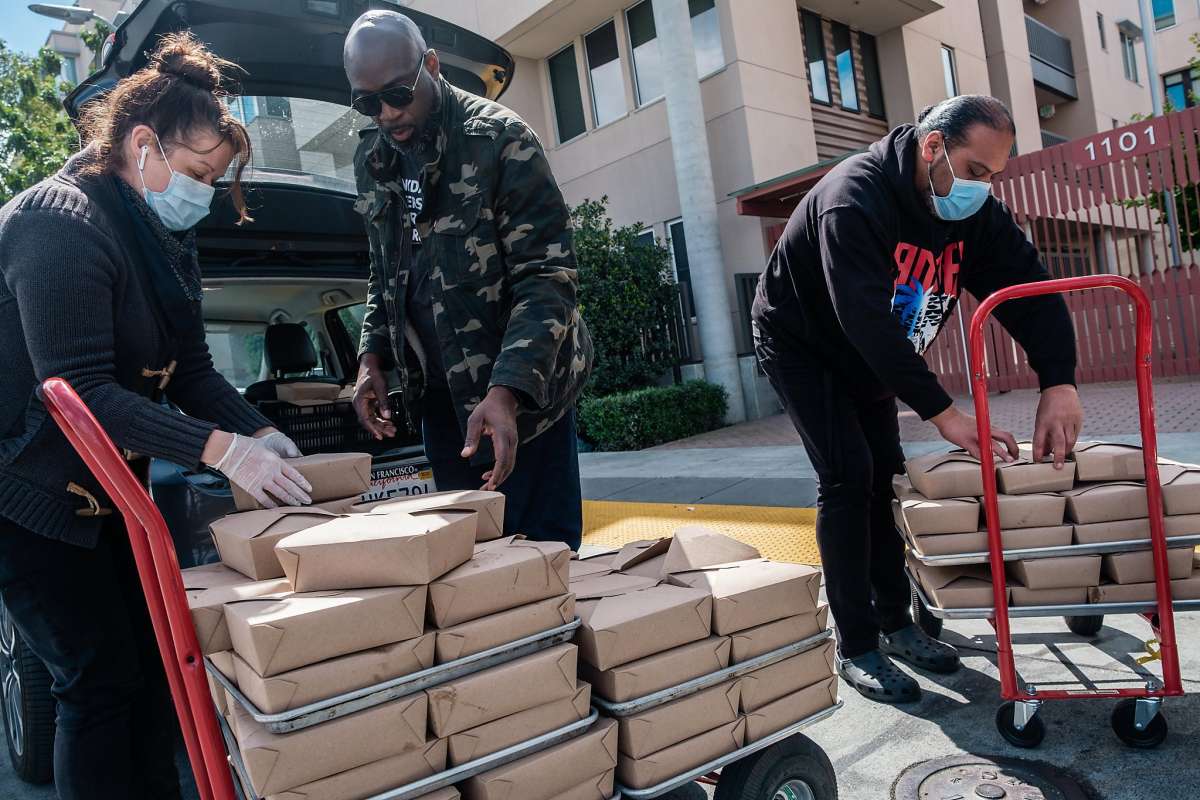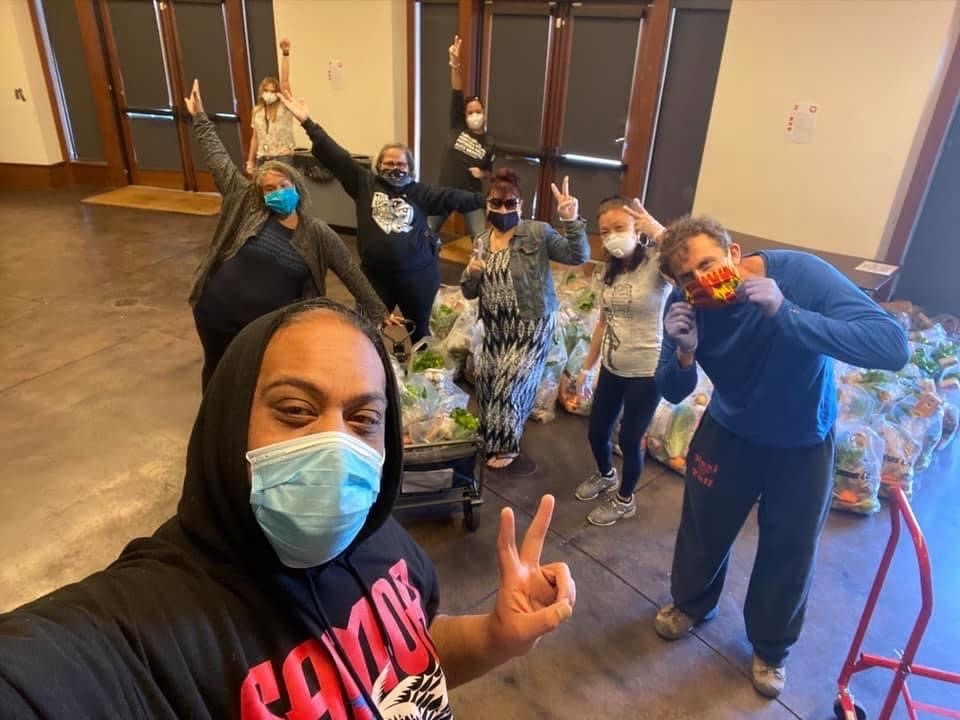Donors Establish COVID-19 Relief Fund for HOPE SF Residents
 RoseMarie Sims, Peejay, and volunteers at Bayview Hunters Point YMCA distribution event.
RoseMarie Sims, Peejay, and volunteers at Bayview Hunters Point YMCA distribution event. By now, it’s clear to many that the COVID-19 pandemic has had devastating economic and health effects across the country. These economic and health burdens are also shining a light on the persistent racial differences in wealth, employment, housing, and access to health care. It has hit communities of color harder than white communities.
In San Francisco, residents in the southeastern part of the city — where HOPE SF sites are located — have experienced a higher rate of coronavirus cases.
“Higher rates of COVID-19 in the Bayview-Hunters Point, Excelsior, Visitacion Valley, and the Mission demonstrated that we have a clear disparity,” Mayor London Breed said at a July 22 press conference. According to city data, as of September 7, there are 354.33 cases per 10,000 residents in Bayview-Hunters Point, the highest rate among San Francisco neighborhoods.”
While communities of color are experiencing higher rates of infection, they’re also disproportionately impacted economically by the pandemic. Workers of color are overrepresented in low-wage jobs that are most vulnerable to furloughs and layoffs during the coronavirus pandemic. In addition, due to decades of structural racism, people of color, particularly Black Americans, have fewer assets and less financial liquidity that would allow them to respond to an emergency.
In San Francisco, residents in the southeastern part of the city — where HOPE SF sites are located — have experienced a higher rate of coronavirus cases.
Black Americans are more likely than white Americans to face discrimination in the workplace or when it comes to getting loan applications approved. Not only are Black workers paid less than their white counterparts, but they have fewer opportunities to access jobs with good salaries, health insurance, and retirement benefits — all key to helping families save money. Black families also have less inherited wealth and are targeted by predatory financial practices like payday loans. Today, the typical Black family in America has just one-tenth of the wealth of a typical white family, according to a survey by the Federal Reserve.
 RoseMarie Sims and volunteers at Bayview Hunters Point YMCA distribution event.
RoseMarie Sims and volunteers at Bayview Hunters Point YMCA distribution event. In San Francisco, before the pandemic the median household income was $113,000. For HOPE SF households it was $20,000. While the HOPE SF team has known about this and other disparities, the pandemic crisis has amplified them, leading the team to think more expansively about what can be done to address these historical inequities.
“There were already adverse experiences against HOPE SF residents before COVID, and the pandemic exacerbated those experiences,” says Saídah Leatutufu, the director of economic advancement for HOPE SF in the mayor’s office. “We’ve seen a large number of our households experiencing food insecurity and now financial insecurity with the loss of employment.”
There are other challenges as well: accessing Wi-Fi for distance learning, and mental health concerns as sheltering-in-place continues. “When you add all those things together, it adds up to a lot of difficulty,” Saídah says. “But the families that we serve are super resilient and we’re doing a lot of work to make sure that they get what it is that they need in order to weather this storm.”
 Peejay and volunteers at Bayview Hunters Point YMCA distribution event.
Peejay and volunteers at Bayview Hunters Point YMCA distribution event. “There were already adverse experiences against HOPE SF residents before COVID, and the pandemic exacerbated those experiences”
In immediate work, HOPE SF is helping residents through a COVID-19 emergency relief fund created specifically for HOPE SF residents. In April, a generous donor gave $150,000 to provide grants to HOPE SF households of Black or Samoan heritage that had experienced a loss in income due to COVID-19. The grants help pay for bills, up to a maximum request of $2,000, including rent, utilities, car payments, child support, and medical bills. Another donor recently added $50,000 to the pot.
While the emergency fund is able to help some households, it doesn’t go far enough to address the depth of the communities’ financial needs. A total of 470 applications for the fund came in, with asks totalling $701,275. Requests averaged about $1,500.
Out of eligible applicants, half had gone from full-time or part-time jobs to unemployed. Others saw their hours reduced or were furloughed or forced to take unpaid sick leave. The requests for financial support highlights the fact that many people had lost their jobs — going directly against the preconceived notion that public housing residents don’t work.
“Traditionally, when people think of HOPE SF and folks living in subsidized housing, there is a preconceived notion that people don’t work … and that they’re not interested in going to work because they want to remain in subsidized housing — when in fact, that’s not true,” Saídah says.
The Bayview Hunters Point YMCA began administering the emergency funds in June. YMCA staffer RoseMarie Sims processes the grants for Alice Griffith, Hunters View, and Potrero while her colleague Iose “Peejay” Iulio takes care of Sunnydale. RoseMarie and Peejay are also residents of Hunters View. So far, nearly $65,000 has been disbursed to 46 households.
In April, a generous donor gave $150,000 to provide grants to HOPE SF households of Black or Samoan heritage that had experienced a loss in income due to COVID-19.
But even disbursing the funds can be challenging. To keep safe from coronavirus, YMCA staff are minimizing in-person interactions and asking applicants to submit documents to complete the grant process digitally. But some residents don’t have access to cell phones that can take photos or capture photos with enough resolution. Others have been hard to get in touch with.
Those who have received the grants are deeply thankful, RoseMarie says. “They are grateful to have someone who helped them and cared about them,” she says.
RoseMarie has heard from residents about the situations that they’re in, and describes their stories as heart-wrenching. One woman, the mother of a four-year-old boy, had been furloughed from her job. “It’s stressful when you’re the parent and you’re pretty young yourself too,” RoseMarie says. The emergency fund helped cover her rent and car payments.
Through the fund, RoseMarie also helped a man pay his bills, including his internet and TV bill, which has been a source of comfort to him during shelter in place. “He told me, ‘I’m alone. I’m by myself. If I don’t have TV, I have no one to talk to.’ All the stories were really sad,” Rose Marie says. “I’m so grateful to HOPE SF for bringing this funding. Whoever donated it is amazing.”
 RoseMarie Sims, Peejay, and volunteers at Bayview Hunters Point YMCA distribution event.
RoseMarie Sims, Peejay, and volunteers at Bayview Hunters Point YMCA distribution event. To make a donation to the HOPE SF emergency relief fund, please visit this page and select “HOPE SF” under “Choose a Fund.” $1,500 will prevent a family from eviction or help them pay their monthly expenses, including rent, bills, and groceries.

